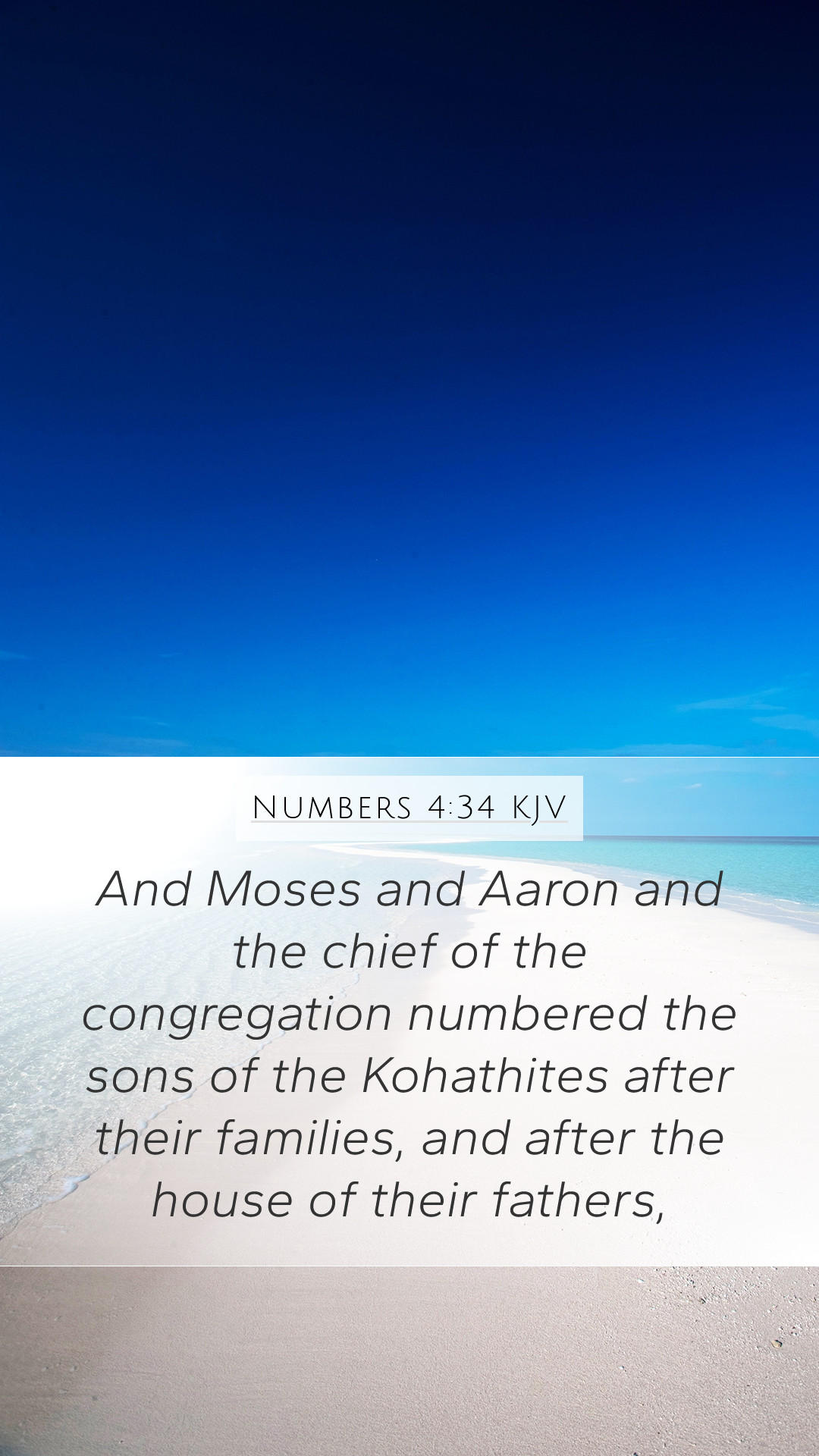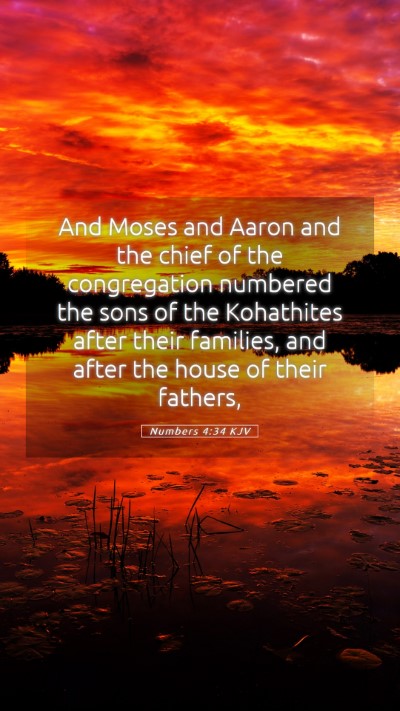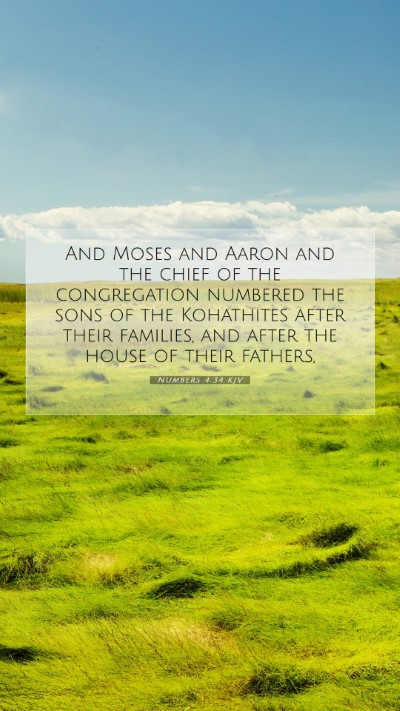Bible Verse Commentary: Numbers 4:34
Bible Verse:
Numbers 4:34 (KJV): "And Moses and Aaron and the chief of the congregation numbered the sons of the Kohathites after their families, and after the house of their fathers,"
This verse comes from the book of Numbers, which is largely focused on the organization of the Israelites in the wilderness, particularly in relation to their duties in the Tabernacle. Understanding this verse requires diving into its context and significance within the biblical narrative.
Contextual Overview
The verse is part of a larger passage that describes the duties assigned to the Levites, specifically the Kohathites, who were responsible for transporting the most sacred objects of the tabernacle.
Insights from Public Domain Commentaries
Matthew Henry Commentary
Matthew Henry emphasizes the importance of the Kohathites in the camp of Israel, noting their unique role in handling holy items. He suggests that this delegation conveys God's orderliness and the sacredness of the duties assigned to the Levites. The counting of the Kohathites after their families also highlights the significance of familial roles in worship and service, underscoring that every member has a part to play in the sanctity of the congregation.
Albert Barnes' Notes on the Bible
Albert Barnes adds detail regarding the genealogical significance of the numbering of the Kohathites. He points out that tribal arrangements in ancient Israel were not merely organizational but also represented a spiritual heritage. By recording the number from the house of their fathers, the passage illustrates the importance of legacy and lineage in the divine plan, establishing a connection between the past and present service to the Lord.
Adam Clarke's Commentary
Adam Clarke expands on the responsibilities of the Kohathites, explaining that their duties included the care of the Tabernacle’s most holy contents, like the Ark of the Covenant. He highlights the seriousness of their service and how it pertains to the overall worship of God in the Israelite community. Clarke also emphasizes that Moses and Aaron's involvement in this counting reflects their leadership role and God’s guidance, reinforcing the idea that divine service requires organization and reverence.
Key Themes and Concepts
- Divine Order: This passage showcases God's desire for order and structure among His people.
- Family and Legacy: The emphasis on numbering by households indicates the importance of family in spiritual matters.
- Service to God: The responsibilities of the Kohathites stress that serving God is a serious and esteemed duty.
- Community Leadership: The roles of Moses and Aaron highlight the importance of leadership in spiritual communities.
Applications and Reflections
In applying this verse to daily life, one can consider the importance of organization and respect within their own community or church. Moreover, recognizing each individual's contribution to the collective worship can lead to a deeper understanding of belonging and purpose within a faith community.
Cross References
- Exodus 25:10-22 - Describes the Ark of the Covenant and its significance.
- Numbers 3:27-31 - Discusses the families of the Levites and their duties.
- Hebrews 9:1-5 - Talks about the tabernacle and its components in relation to the New Covenant.
Conclusion
This deep dive into Numbers 4:34 illustrates the importance of understanding Scripture through careful consideration of context, leadership roles, and the sacredness of service in a religious community. This verse acts as a reminder of God's intentions for order and reverence in worship, and encourages believers to reflect on their own roles within their faith communities.


